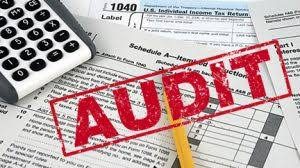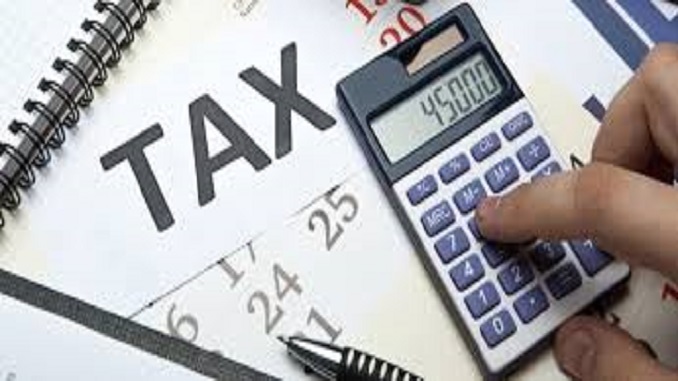The collection of taxes in Nigeria is three–tiered; Federal, State and Local Governments. At each tier of government, there is an authority with powers to collect the relevant taxes; the Federal Inland Revenue Service (FIRS) at the federal level, State Inland Revenue Service (SIRS) across the 36 states and the local government tax authority for the local governments within the states.
Examples of federal taxes collected in Nigeria
|
Personal Income Tax which is paid by
|
• Members of the armed forces • Members of the police other than in civilian capacity •Families, communities, trustees and estates resident in the FCT • Officers of the Nigerian Foreign Service • Non-resident individuals who derive profit/income from Nigeria
|
|
Capital Gain Tax which is paid by
|
• Body corporate and individuals’ who derive profit /income from the sale of capital assets in Nigeria
|
|
Companies Income Tax which is paid by
|
• All registered companies except petroleum companies
|
|
|
• Non resident (foreign companies) that derive income and profit from Nigeria
|
|
|
• Companies limited by guarantee that are engaged in profit making other than promoting their primary objectives
|
|
|
• Liquidator, receiver or their agent, of a taxable company
|
|
Petroleum Profit Tax which is paid by
|
•Companies engaged in petroleum exploration and production operations in Nigeria (up-stream operations)
|
|
|
• A person resident in Nigeria employed in the management of the petroleum operations carried on by a non-resident company
|
|
Value Added Tax which is paid by |
• Individual, corporation sole, group, body corporate or organizations that consume, buy, procure or import taxable goods or services. |
|
Tertiary Education Tax |
• Payable by all corporate entities. |
|
Withholding Tax |
|
|
Stamp Duties |
|
|
Industrial Training Fund Contribution
|
(NITDF) levy on companies and enterprises with an annual turnover of N100, 000,000.00 and above operating as:
• GSM Service Providers or telecommunications companies • Cyber companies and internet providers • Pensions managers and pension related companies • Banks and other financial institutions, Insurance companies. |
|
Examples of State Taxes collected in Nigeria |
Examples of Local government taxes |
|
Gaming and Casino Tax, Pool Betting and Lotteries; |
Shops and Kiosks rates; |
|
Personal Income Tax (PAYE and direct taxation/self-assessment); |
Slaughter slab fees |
|
Stamp duties on instrument executed by individuals; |
Marriage, birth and death registration fees; |
|
Capital gains (individuals only); |
Market levies excluding those funded by state finance; |
|
Withholding tax (individuals only) |
Motor park levies; |
|
Stamp duties on instruments executed by individuals; |
Merriment and road closure levy; |
|
Business premises registration in urban and rural areas within the state; |
Vehicle road license fees |
|
Market levies and taxes where state finance is involved; |
Signboard and advertisement permit fees; |
|
Road taxes |
Public toilet, sewage and refuse disposal fees; |
|
Development levy not more than N100 per annum |
Right of Occupancy fees on land in rural areas, excluding those collected by the federal and state governments; |
|
Right of Occupancy fees on lands owned by the State government in Urban areas; etc. |
Wrong parking charges; |
|
|
Tenement rates |

FILING OF TAX RETURNS
For the purpose of tax administration, the requisite forms for filing annual tax returns at the federal level can be obtained at the FIRS. This will apply to personal income tax and other taxes on individuals, taxes on companies, VAT etc. All other returns shall be prescribed by the relevant tax authorities responsible for the collection of such taxes.
REQUIREMENTS FOR SELF-ASSESSMENT FOR COMPANY INCOME TAX
- Duly completed Self-Assessment Form
- Audited financial statement signed by two Directors which will include
- Balance Sheet
- Profit and Loss Account
- Statement of change in equity
- Statement of Cash flow
- Notes of significant accounting policies and other explanatory information
- Comparative figures of preceding year on the Generally Accepted Accounting Principles (GAAP) basis to be included in the returns.
- Tax Computation
- Capital Allowance Computation
- Schedule of fixed assets
- Evidence of payment of the taxes due (e-ticket from the bank).
The accounts must be audited and signed by two external auditors who must be members of a recognised professional body.
Self-assessment returns shall be filed within six months from the end of the accounting year for an existing company or eighteen (18) months from the date of incorporation.
REQUIREMENTS FOR SELF-ASSESSMENT FOR PERSONAL INCOME TAX – SELF EMPLOYED
- Duly completed Self-Assessment Form II.
- Duly completed income tax form (Form A)
- Statement of full amount of income earned in the preceding year from all sources;
- Particulars of income, relief, deductions and allowances the person is entitled to;
- Declaration and attestation of correctness and completeness of return by the taxable person;
- Evidence of payment of tax (e-ticket from the bank as evidence of payment) The due date for the filing of self-assessment returns under the Personal Income Tax Act shall be on or before the 31st day of March of every year.
REQUIREMENTS FOR SELF-ASSESSMENT FOR PERSONAL INCOME TAX – PAYE
- Duly completed Self-Assessment Form
- Duly completed income tax form (Form A)
- Income other than employment income earned from all sources in the preceding year;
- Income earned from employment in the current year;
- Declaration and attestation of correctness and completeness of return by the taxable person;
- Evidence of payment of tax (e-ticket from the bank as evidence of payment) PAYE returns must be submitted for each month on or before the 10th day of the month following the month to which the tax deductions relate using the appropriate schedule.
REQUIREMENTS FOR ANNUAL RETURNS BY EMPLOYERS
- Completed form A (income tax form for returns of income and claims for allowances and relief)
- Form H1 (Annual Income declaration)
- A schedule of tax deduction from the employer containing the following information
- Name of employer
- Tax identification No. of employer (TIN)
- Names of employees
- Tax identification Nos. of employees
- Total emolument for each employee
- Consolidated relief
- Tax deducted
- Overall total tax charged and remitted
- Evidence of payment of tax (e-ticket from the bank as evidence of payment)
Every employer is required to file a return not later than 31st of January of every year
REQUIREMENTS FOR FILING ESTIMATED TAX RETURNS FOR PETROLEUM PROFIT TAX
- A statement of estimated income and expense for the period
- A statement of estimated adjusted profit and loss
- Estimated tax and capital allowances computation for the period
- Computation of estimated monthly tax payment
A return is filed not later than two (2) months of the commencement of the accounting period
REQUIREMENTS FOR FILING ANNUAL TAX RETURNS FOR PETROLEUM PROFIT TAX
- Audited financial statement and accounts for the period
- A statement showing all qualifying expenditure incurred during the period
- Computation of chargeable profits and loss for the period
- A statement of other sums deductible, the liabilities of which were incurred for the period
- Computation of capital allowances claimable for the period
- Computation of actual (and final) tax payable for the period
- Signed declaration of the correctness of the returns
- Evidence of payment of the final (13thinstallment)
Every company which has or is engaged in petroleum operation with respect to any accounting period of the company is required to file a return within 5 months after expiration of the period.
REQUIREMENTS FOR VALUE ADDED TAX
- Total Value of Supplies made during the period
- Disclosure of the value of output tax charged on its invoice
- Total value of purchases on which input tax was paid
- Schedules of both input and output tax attached to the VAT returns, together with any adjustments made during the period, for bad debts, credit notes etc.
- Net VAT due i.e. the excess of output tax over input tax, with evidence of payment of the VAT
- A signed declaration of completeness and correctness of returns All taxable persons and agents of Ministries, Departments and Agencies of government subject to Value Added Tax (VAT) shall make VAT returns not later than the 21st day of the month following that in which the transaction was made.
REQUIREMENTS FOR EDUCATION TAX RETURNS
- Computation of education tax payable
- Duly completed self-assessment form attested to by a director or secretary of the company
- Evidence of payment of education tax due (e-ticket from the bank) All Companies registered in Nigeria shall contribute to the education tax fund at the rate of two per cent. This shall be charged on the assessable profit of a company registered in Nigeria. The returns of education tax are made along with those of Companies Income Tax or Petroleum Profit tax whichever applies, but paid separately.
REQUIREMENTS FOR CAPITAL GAINS TAX RETURNS
- Duly completed self-assessment forms
- Computation of Capital Gains Tax payable
- Schedule of Assets including proof of sale
- Evidence of asset and asset improvement
- Evidence of payment of CGT (e-ticket from the bank)
- Other relevant information Capital Gains tax is paid at the rate of 10% on the disposal of chargeable assets
REQUIREMENTS FOR NITD LEVY
- Computation of tax payable
- Evidence of payment of tax due (e ticket from the bank) NITD Levy is 1% of the profit before tax and is tax deductible when paid by companies and enterprises.
REQUIREMENTS FOR WITHHOLDING TAX
Submit a schedule of withholding tax deducted, showing:
- Period covered
- Name, address and Tax Identification Number (TIN). of each supplier or beneficiary
- Nature of supply and gross amount of supply
- WHT rate amount of tax deducted
- TIN of company/organization making remittance
- Evidence of Payment
WHT is filed for all companies apart from petroleum companies within 21 days from the date the amount was deducted or the time the duty to deduct arose.
In the case of petroleum companies, WHT is filed within 30 days from the date the amount was deducted or the time the duty to deduct arose.
PENALTIES
The failure to pay tax, levy or fee will incur a penalty for non-compliance and is imposed by the tax law, rules or legislation of either the federal, state or local government, depending on the service that is responsible for regulating the tax, levy or fee.






zithromax pills zithromax prescription
generic zithromax azithromycin zithromax 250mg
війна в україні 2022 пророцтва скільки триватиме війна в україні 2022 скільки ще буде тривати війна в україні
На пятьдесят оттенков темнее